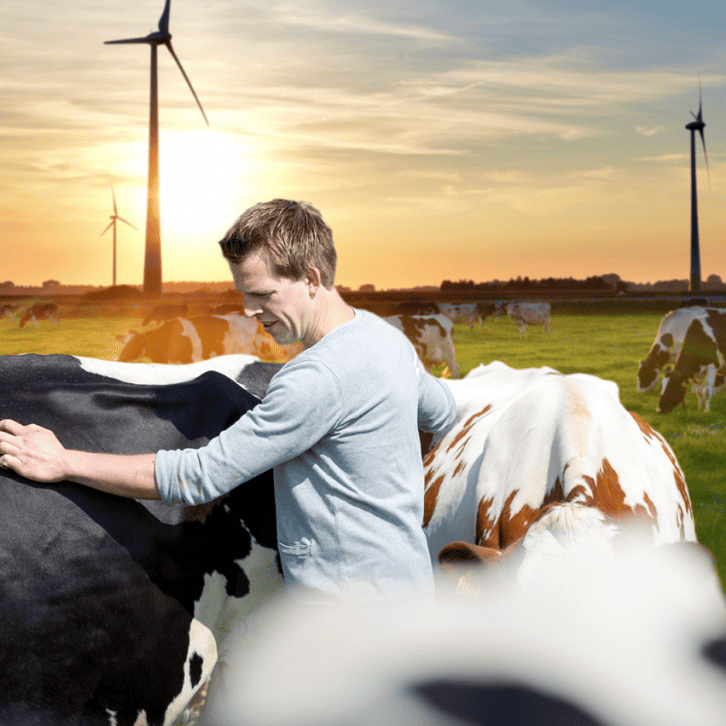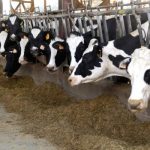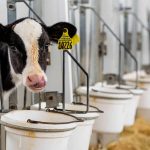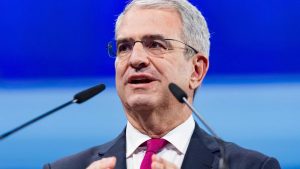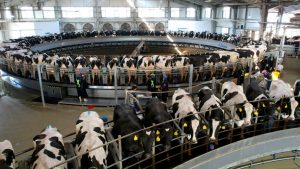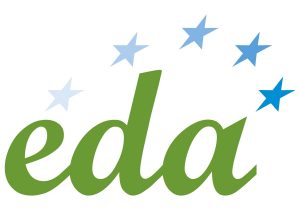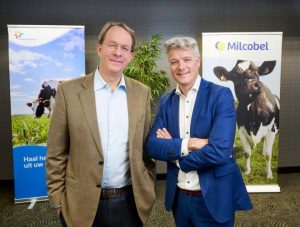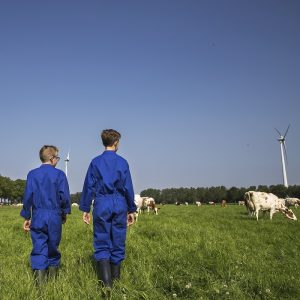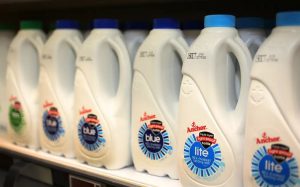
Dutch dairy cooperative, FrieslandCampina, and snack giant, Mondelēz International, have signed a four-year agreement aimed at reducing the greenhouse gas (GHG) emissions of milk supplied by dairy farmers by around 14% in 2025 compared to 2019.
Both companies stressed how key partnerships are in relation to accelerating on-farm carbon footprint reduction.
FrieslandCampina, said it, in collaboration with its dairy farmer members, is working towards producing net climate-neutral dairy by 2050 at the latest, through an approach based on measuring, acting, and monitoring.
Sanne Griffioen-Roose, director, farm sustainability, FrieslandCampina, said the cooperative, by collaborating with Mondelēz, can reward its farmers for their GHG reductions while also investing in programs to continuously improve sustainability at the farms.
The dairy cooperative has 15,137 dairy farmers as members; they are spread throughout the Netherlands, Belgium, and Germany.
Mondelēz uses milk from those farmers in its chocolate and biscuit production in Europe; it said it will work closely with FrieslandCampina on this project, encouraging and supporting its initiatives to reduce, track and report emissions. The alliance will help Mondelēz reach its sustainability targets as well.
The partnership will benefit dairy farmer members in Netherlands, Belgium, and Germany that reduce GHG on their farms, said FrieslandCampina spokesperson, Floor Meijnders. “Their results are stimulated and rewarded though FrieslandCampina’s sustainability program, Foqus planet.”
Under that program, its farmer members receive financial premiums based on their results on climate, biodiversity, pasture grazing, animal health and animal welfare goals. The farmers have prior insight into what certain sustainability results at the farm yield financially; the premium for GHG reductions can run up to €1.50 per 100 kg of milk, Meijnders told us.
“This provides farmers with an incentive and makes it possible for them to continue to invest in making their own dairy farm more sustainable,” she noted.
Data driven approach
FrieslandCampina uses the Dutch dairy sector monitoring tool, Annual Nutrient Cycling Assessment (ANCA), to track progress resulting from sustainable farming practices. The instrument is used by almost 10,000 FrieslandCampina member dairy farms and gives farm specific insights, such as the size of the carbon footprint and biodiversity indicators.
Implementing good agricultural practices, such as reducing waste in the feed cycle, minimizing tillage of the soil, and using local protein sources are all potential strategies for reducing emissions on dairy farms, reported the cooperative.
Dairy farmers can also generate their own renewable energy, which is subsequently used on the FrieslandCampina’s production sites.
In 2022, Mondelez International’s net revenue in Europe was around US$11.42bn. The group has over 34,000 employees in Europe, based in 49 countries. Its portfolio includes global and local brands such as OREO, belVita and LU biscuits; Cadbury Dairy Milk, Milka, Toblerone and Côte d’Or chocolate; Philadelphia cream cheese, and Halls candies.
Earlier this month, FrieslandCampina reported difficult market conditions due to sharply lower basic dairy prices and high inflation, with a resulting decrease in volumes.
